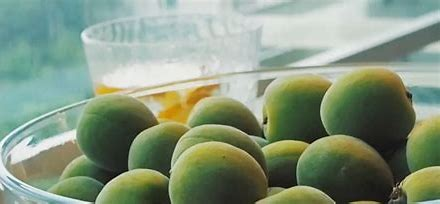Editor’s note: The 24 Solar terms are an ancient Chinese calendar used to guide farming. They are the crystallization of the accumulated experience and wisdom of the working people of the Chinese nation. Since ancient China was an agricultural society, people required a strict understanding of the sun’s movement, and farming was conducted entirely according to the sun as well. Therefore, the “24 solar terms”, which reflects the sun’s movement cycle, were added to the calendar as the standard for determining leap months. The 24 solar terms are: Start of Spring, Rain, Awakening of Insects, Spring Equinox, Qingming festival, Grain Rain, Start of Summer, Grain Buds, Grain in Ear, Summer Solstice, Minor Heat, Major Heat, Start of Autumn, End of Heat, White Dew, Autumn Equinox, Cold Dew, Frost’s Descent, Start of Winter, Minor Snow, Major Snow, Winter Solstice, Minor Cold and Major Cold. On November 30, 2016, China’s “24 Solar terms” was officially inscribed on UNESCO’s Representative List of intangible Cultural Heritage of Humanity. We have introduced the 24 Solar terms column to bring you a taste of the beauty of traditional Chinese culture.
When it comes to the best time of farming, it must be Grain in Ear. Grain in Ear is the ninth solar term of the 24 solar terms, which marks the official start of the midsummer season. It refers to the harvest of wheat and other awn plants, as well as the millet sowing season. The homonym of Grain in Ear in Chinese is busy. At this time of the year in China, rice will be planted in the south, while people in the north have begun to harvest wheat. Therefore, the arrival of Grain in Ear indicates that it’s time for farmers to take up their busy life in the field. In other words, the Grain in Ear guides farming.

Grain
The Grain in Ear solar term is characterized by a significant increase in temperature, abundant rainfall and high air humidity. During this period, there is a possibility of high temperature weather in both northern and southern China. The southeast monsoon rain belt in south China is stable, and the South of The Yangtze River has entered the plum rain. However, the northern areas of China have not entered the rainy season yet.
Meanwhile, this solar term also brings strong winds, heavy rain, hail, tornadoes and other weather disasters. Surprisingly, the increase in temperature and abundant rainfall is quite suitable for the cultivation and sowing of cereal crops such as late rice. Hence, people will cherish time and devote themselves into planting crops. As the old proverb goes, “Grain in Ear is a busy time, and seedlings will be planted in the evening”.
As for the customs of Grain in Ear, “boiling the plums” is worth mentioning, which relates to the ancient story of “Green plums boiled wine on heroes” in the Three Kingdoms. As May and June are the ripening season of plums, the rain and plums both arrive as scheduled, adding a touch of beauty to this solar term. Containing a variety of vitamins and minerals, the green plums can reduce blood lipids, balance human acid and alkali, and enhance immunity. With so many nutrition and health care effects, people have a great affinity for green plums. Nevertheless, the green plums are so sour that people came up with a good idea to handle this—that is, boiling them. Hence, boiling the plums has become one of the folk customs of Grain in Ear.

Boil the green plums
With the high temperature during Grain in Ear, knowing how to prevent heatstroke is of great importance to us, especially for the elderly and children. You’d better not do too much exercise at noon or in the afternoon, since these periods of time have the highest temperatures during the day. Also, remember to wear loose-fitting gym clothes and drink water regularly to prevent heatstroke. If possible, bring a mini fan with you in advance.

